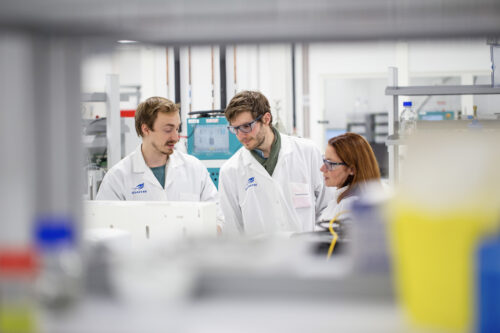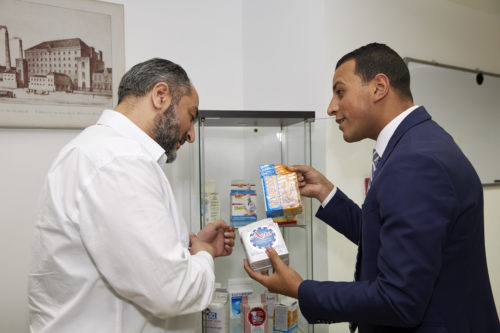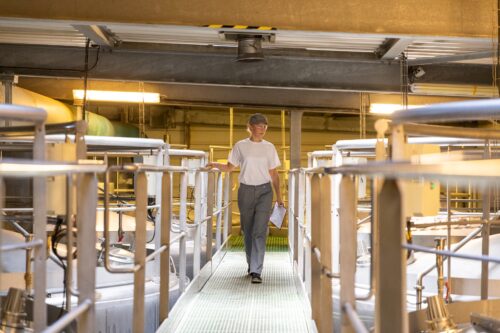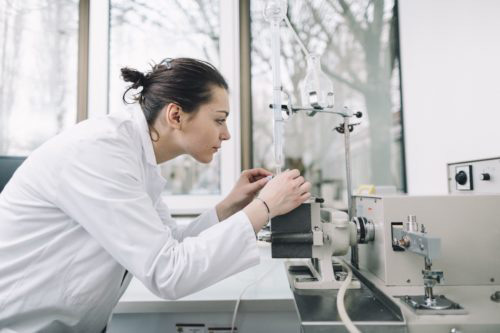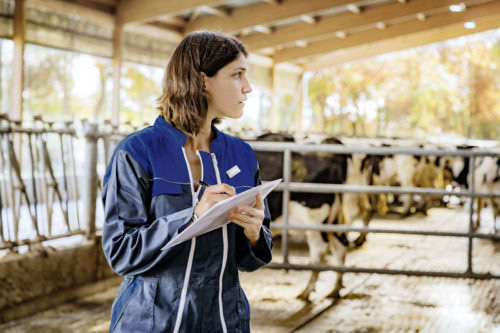From the earth, to the earth: The yeast life cycle

Yeast Production: Industrial process, innovations, and future.
At Lesaffre, we are fully dedicated to our mission of working together to better nourish and protect the planet. This promise not only applies to the methods and technology used to produce our range of products and services, but also to how we generate value and repurpose the derivative products from our industrial processes.
Why yeast is it crucial for industrial use?
In an industrial context, yeast’s unique properties and capabilities make it an indispensable resource in a wide range of applications, the best known and oldest of which is baking. But yeast production is also useful in the production of biofuels and helps us reduce our dependence on fossil fuels. In this way, this microorganism and its production meet our most essential and fundamental needs while helping us build a sustainable future.
At the heart of yeast production lies its ability to convert sugars into ethanol and carbon dioxide through a process called fermentation. This remarkable and natural metabolic process enables yeast strains to be multiplied on an industrial scale.
That is why Lesaffre is convinced that fermentation and microorganisms play an essential role in our industries and also contribute to meeting the food, societal, and environmental challenges of tomorrow.
The industrial process of yeast production at Lesaffre
The fermentation process
The fermentation process is a key stage in the life cycle of yeast. This aerobic fermentation process involves gradual decomposition, allowing the yeast to multiply rapidly in an industrial environment.
First, yeast strains are introduced into an optimized environment with the right temperature, pH, and nutrient levels. This triggers rapid reproduction of yeast cells through budding, creating new generations of yeast.
By carefully controlling fermentation conditions such as aeration, agitation, and nutrient supply, Lesaffre optimizes yeast growth and productivity to ensure its production needs. Understanding and optimizing this fermentation process is essential to fully exploit the potential of yeast in a wide range of industrial applications.
Going full circle
Early on in our history, we identified concentrated sugar beet juice as an excellent agent for growing yeast. Our yeast production begins with sugar beets, which are processed into white sugar and various syrups that are used to create our fermentation substrates. These elements are carefully selected and mixed to produce the growing medium on which yeast cells will multiply. Once we harvest the yeast cream, we collect the remaining part of our substrates and process it into a range of products that meet very precise specifications. This process is a wonderful example of the circular economy at work. We use our derivative products as natural fertilizers, which can be carefully sprayed on the very beetroot fields where they originated to boost the growth of future beetroots. Other grades can be adapted to feed ruminants and or used as raw material for fertilizer. In 2024, our biostimulants protected an area equivalent to more than 1.9 million hectares of field and specialist crops worldwide against water stress.
Our commitments
As an eco-responsible company, we aim to preserve our planet and its natural resources. We are dedicated to accomplishing the UN’s Sustainable Development Goal #12 as well as our own objectives:
- respect environmental regulations in every country where we operate
- increasingly rely on renewable energy
- reduce fossil energy sources across all factories
- improve the quality of water released into the environment
- reduce the use of fossil fertilizer resources
The yeast derivatives virtuous circle

At Lesaffre, we are committed to harnessing the incredible versatility of yeast to create a more sustainable future. From our origins in traditional baking to our cutting-edge innovations in industrial biotechnology, we have spent more than 170 years perfecting our microorganism production processes.
Looking ahead, Lesaffre remains committed to innovation, addressing sustainability challenges, and providing innovative, environmentally friendly products that better nourish and protect our planet. With our global expertise, commitment to RD&I, and collaborative partnerships, we are writing the next chapter in industrial yeast production.
Featured Jobs
know more about lesaffre
Our subcontracting services
Our clients, across a vast number of industries, often need to perform industrial fermentation processes that exceed their own human or material resource capacity.

Our global supply chain
At Lesaffre, our supply chain relies on our global presence and local expertise to provide our customers with the best products and services possible.


















